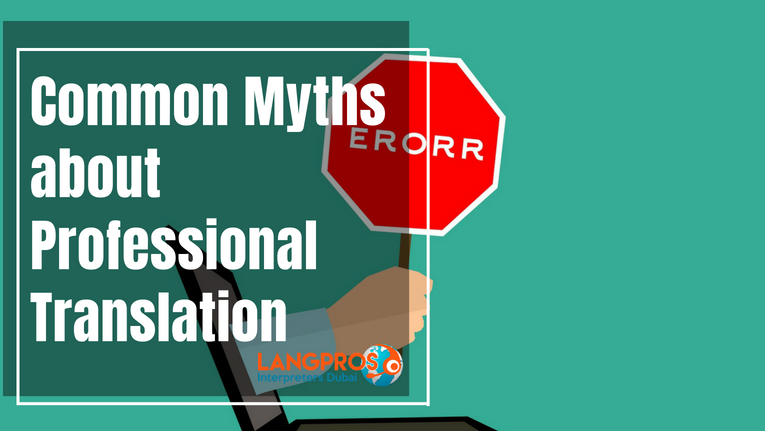Nowadays international communications have become the order of the day. For this reason, translators are becoming increasingly important for people who do not share a common language and culture to understand each other. Yet their profession is still little known and is the target of many misconceptions. Here is a list of the most common myths about professional translation, which aims to shed light on the basics of the translation profession.
Translation is done word-for-word
Professional translators do not translate texts word-for-word since this method does not take context into account. For instance, the word “drug” may refer either to a medical treatment or to an illegal substance. What it all boils down to is context, which helps to select the right meaning. This is why Machine Translation systems such as Google Translate might help understand the meaning of a text roughly but cannot be trusted to produce an accurate translation since they lack any form of contextual information.
Translating is fast and easy
People often think of professional translators as freelancers who work from home wearing pyjamas with a mug of coffee and a very flexible work schedule. Actually, this is not the case. Every professional translator has experienced the mental distress of spending hours on a single word to find the expression that best fits in the context. It should also be noted that translation is not confined to the transfer of a text from a language into another, but it is preceded by extensive research on a specific topic and followed by strict revision of translated content. Besides textual operations, professional translators have to perform personal branding in order to find new clients, and this may be a time-consuming and difficult process.
Being bilingual is enough to be a translator
This is a very common misconception. Bilingual people have a good command of two languages, but, unless they have received specific education, they are not to be considered natural-born translators. Indeed, professional translators must possess a deep knowledge not only of languages but also of cultures and they must master translation strategies and field-specific terminology and phraseology.
English translations are enough to achieve global reach
It is true that English is a lingua franca and one of the languages with the highest number of speakers worldwide. However, readers may not be fluent in English or, as recent studies suggest, may prefer to read contents in their mother tongue. According to a report by the Common Sense Advisory on web localization, in order to be understood by 80% of the global population, a website should be translated into not one but as many as 14 foreign languages!
